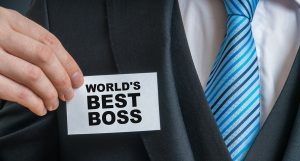
Resilient Leadership is Built on a Solid Foundation
Resilient leadership is built on a solid foundation: it requires a healthy mindset to take the most prudent steps. You certainly don’t have to look far

Resilient leadership is built on a solid foundation: it requires a healthy mindset to take the most prudent steps. You certainly don’t have to look far

It’s no joke: resilient leadership requires the right mindset. When faced with a setback or crisis, the best of the best leaders know how, and

Do you demonstrate resilient leadership? Let me ask you this: do setbacks give you an advantage? Leaders who have become the best of the best

I’ve been praising the character trait of humility, particularly when it comes to leadership. (You can read my posts here.) This topic comes up often

Do you know any truly humble leaders? Or, more importantly, how to develop humility in leadership? In the classic book Good to Great, Jim Collins

If you’ve ever worked for someone with a big ego, then you know how frustrating it can be. Nothing can be more debilitating in an

Fear of failure has several telltale—and observable—signs. You’re likely to set your ambitions too low or too high, explains entrepreneurship expert Robert Kelsey, author of

From what I see in the organizations where I consult, there’s an urgent need to understand leadership personality. Today―and especially for the future―we need leaders

In my previous posts, I presented different theories of leadership development based on the fact that leaders, like all adults, progress through stages as they

How do leadership developmental stages contribute to growing effective leaders? Developmental theories have been around for decades, based on 50 years of psychological research into

Join Nancy as she talks with Meredith Hirsh, her client, on her podcast, Working Healthcare. Learn when to seek a therapist versus a coach and

Listening may be the most difficult skill to master when communicating effectively. But master it, we can! The non-verbal part of communicating is the most

How do you test your leadership insights? “Innovation is seeing what everybody has seen and thinking what nobody has thought.” ~ Dr. Albert, Szent-

An organization’s health is only as sound as its leader’s decisions. Some companies prosper from wise leadership directions, while others struggle after flawed choices—choices that







